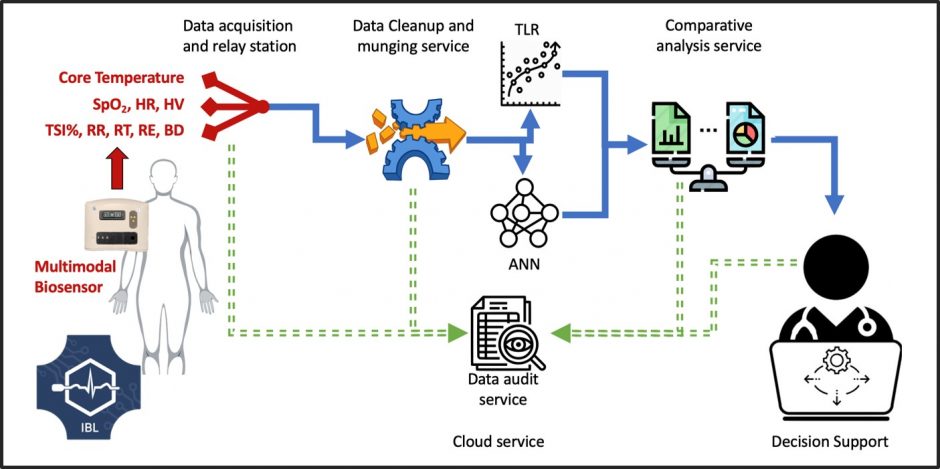
In people infected by COVID-19, lung tissue is attacked and gradually destroyed by the viral infection leading to respiratory dysfunction and distress. Current regular screening of suspected COVID-19 patients is primarily based on the patient’s history, clinical features, and measuring the body surface temperature. These methods can be slow, non-reliable, and nonspecific with limited ability to impact transmission of the infection. Moreover, when COVID-19 infection is confirmed, monitoring patients and their responses to treatment are mainly based on clinical observations, in which routine vital signs monitoring are limited in scope and fail to provide in-depth information.
Building upon prior work by our research team, in this project, we are developing a novel, non-invasive, sensitive, and accurate biosensing device with a simple-to-operate method for screening, early diagnosis, and monitoring patients infected by coronavirus species, including the COVID-19. By placing a compact biosensor over an individual’s chest, several physiological parameters related to respiratory function, body oxygenation status, and body response to potential viral infection will be collected. This information will be integrated and analyzed by advanced software to create a sensitive screening index capable of identifying patients affected by COVID-19. Successful completion of this project will form a novel solution for rapid screening of COVID-19 patients and monitoring infected patients at the hospital and home, even in low-resource settings.
Related Publications
- Khaksari K, et al. (2021); DOI: 10.1117/1.JMI.8.S1.010901
Supported By:

